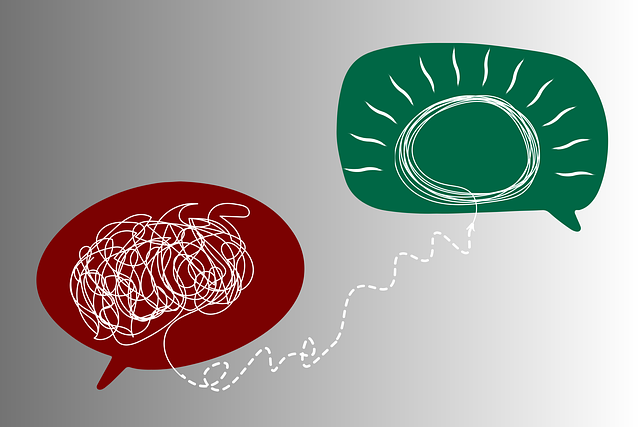Understanding Oregon's civil commitment proceedings under mental health law is essential for protecting individuals' rights. Washington County advocacy groups offer critical support, guiding clients through complex regulations and ensuring fairness. Specialized legal representation helps advocate for least restrictive treatment options, balancing public safety with individual autonomy. Navigating appeals is vital to uphold due process and protect the rights of those facing involuntary commitments in Oregon.
“Unraveling the complexities of civil commitment hearings and appeals is essential for ensuring fairness and justice in mental health cases. This comprehensive guide explores critical aspects of legal guidance, focusing on Washington County advocacy and Oregon’s unique commitment process.
We delve into understanding civil commitment proceedings, examining mental health law’s pivotal role in protecting individuals’ rights. From initial hearings to navigating appeals, this article provides a step-by-step examination of legal representation strategies. By shedding light on these procedures, we aim to empower advocates and ensure sensitive navigation through Oregon’s commitment process.”
- Understanding Civil Commitment Proceedings: A Foundation for Legal Guidance
- Mental Health Law and Its Relevance to Washington County Advocacy
- Oregon's Commitment Process: A Step-by-Step Examination of Rights and Representation
- Navigating Appeals in Civil Commitment Hearings: Ensuring Fairness and Justice
Understanding Civil Commitment Proceedings: A Foundation for Legal Guidance

Understanding Civil Commitment Proceedings forms the bedrock upon which effective legal guidance on civil commitment hearings and appeals is built. These proceedings, governed by mental health law, involve a process where individuals deemed a risk to themselves or others due to severe mental illness may be involuntarily committed for treatment. States like Washington County and Oregon have established commitment processes that balance public safety with the rights of those facing such commitments.
Accessing appropriate legal representation is crucial in these cases. Advocacy groups in Washington County, for instance, offer support and guidance navigating the often complex Oregon commitment process, ensuring individuals understand their rights and can exercise them effectively during hearings. Legal counsel specializing in mental health law can help interpret regulations, challenge involuntary commitments if warranted, and advocate for the least restrictive treatment options available.
Mental Health Law and Its Relevance to Washington County Advocacy

Mental Health Law plays a pivotal role in shaping the landscape of civil commitment proceedings in Oregon, particularly within Washington County. This legal framework ensures that individuals undergoing the Oregon commitment process are afforded their fundamental rights, especially those with mental health challenges. The law outlines specific procedures and guidelines that must be followed during these sensitive cases, ensuring fairness and due process.
Washington County Advocacy organizations strive to navigate this intricate web of regulations to protect the interests of their clients. Adequate legal representation is crucial in civil commitment hearings, where the decisions can significantly impact an individual’s autonomy and future. Understanding mental health law enables advocates to challenge inappropriate commitments, ensure informed consent, and safeguard the rights of those facing such proceedings.
Oregon's Commitment Process: A Step-by-Step Examination of Rights and Representation

In Oregon, the civil commitment process is a multi-step procedure that requires strict adherence to state laws and regulations regarding mental health. The journey begins with an initial assessment, where professionals determine if an individual meets the criteria for involuntary commitment based on their mental health status and potential danger to self or others. If warranted, a petition is filed in court, initiating formal civil commitment proceedings. This legal process involves several key stages: arrest and detention, filing of the petition, a hearing before a judge, and ultimately, either release or placement in a mental health facility.
Throughout these civil commitment proceedings, individuals have specific rights protected under Oregon’s mental health law. They are entitled to legal representation, ensuring they can navigate the complexities of the system and understand their options. Washington County advocacy groups play a crucial role in supporting those facing commitment, providing guidance, and advocating for their rights. Effective representation is vital to ensure fairness, especially given the life-altering nature of these cases.
Navigating Appeals in Civil Commitment Hearings: Ensuring Fairness and Justice

Navigating Appeals in Civil Commitment Hearings plays a pivotal role in ensuring fairness and justice within the complex landscape of mental health law. When individuals face civil commitment proceedings, whether in Washington County or elsewhere in Oregon, their rights become paramount. The commitment process, often involving sensitive and nuanced circumstances, demands meticulous advocacy to safeguard the rights of those involved. Effective legal representation is instrumental in guiding clients through this intricate web, ensuring their voices are heard and their interests protected at every stage.
Oregon’s commitment process, like its mental health law framework, prioritizes a balanced approach. It recognizes the delicate balance between individual autonomy and public safety. Washington County advocacy groups have a pivotal role in navigating these appeals, offering crucial support to those whose freedom is temporarily restricted. By ensuring proper legal representation, these advocates contribute to a fair and just outcome, upholding the principles of due process while addressing the unique challenges presented by civil commitment proceedings.
